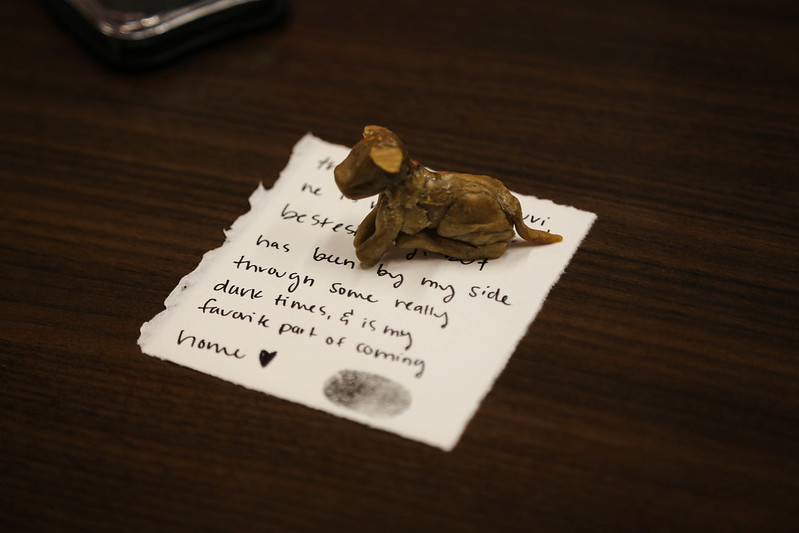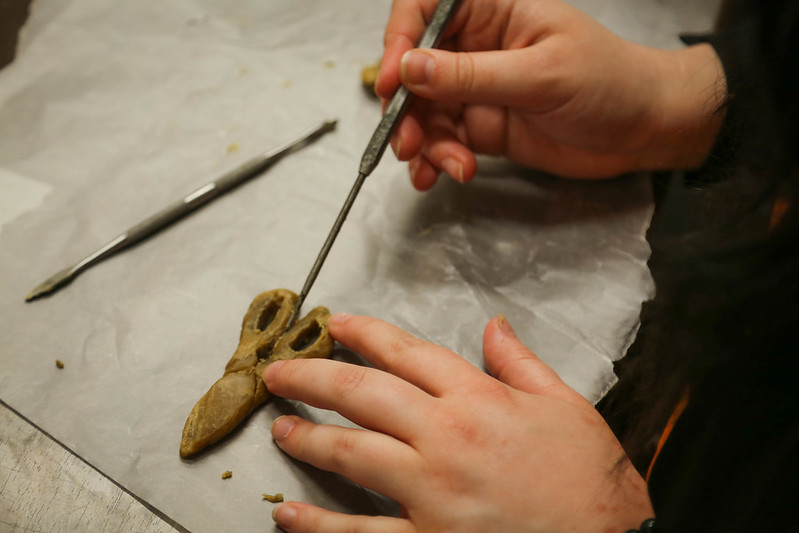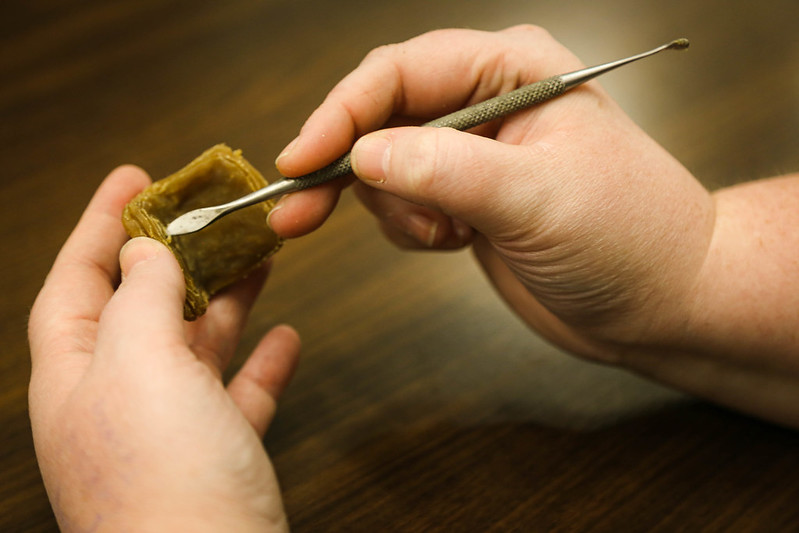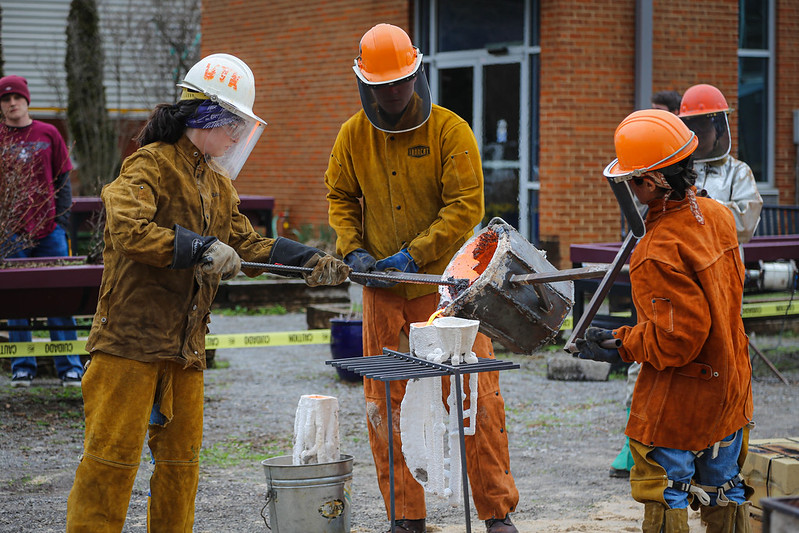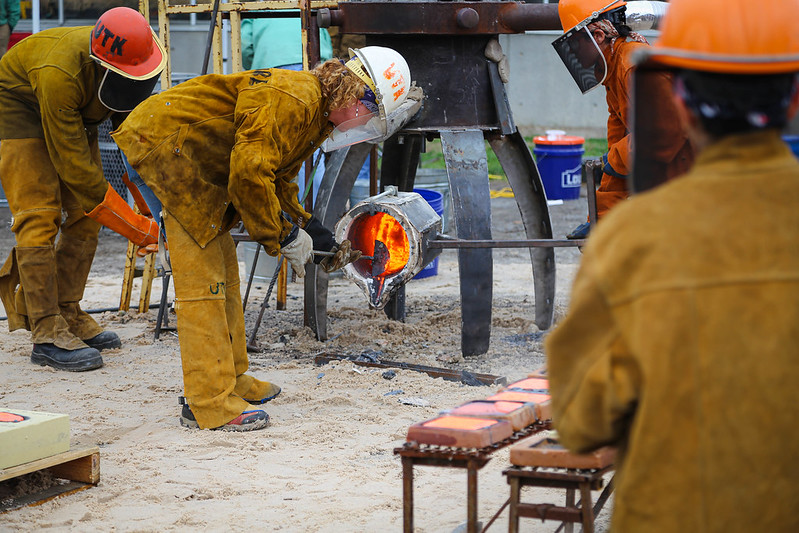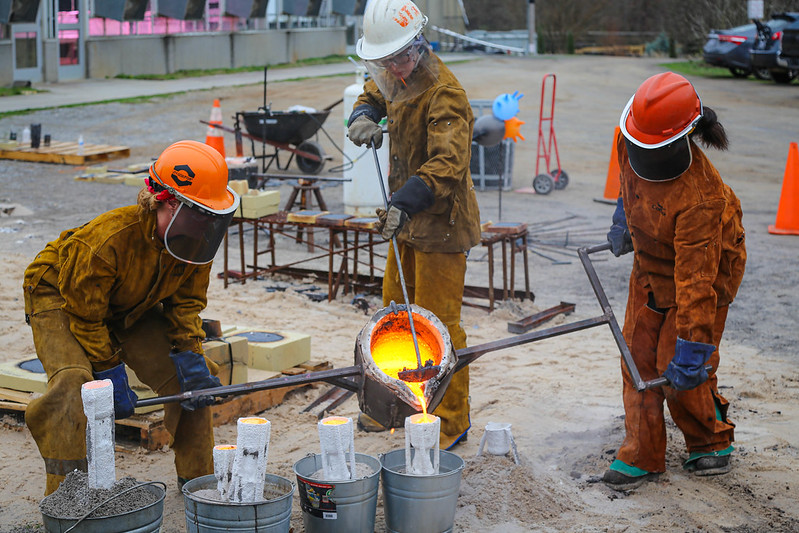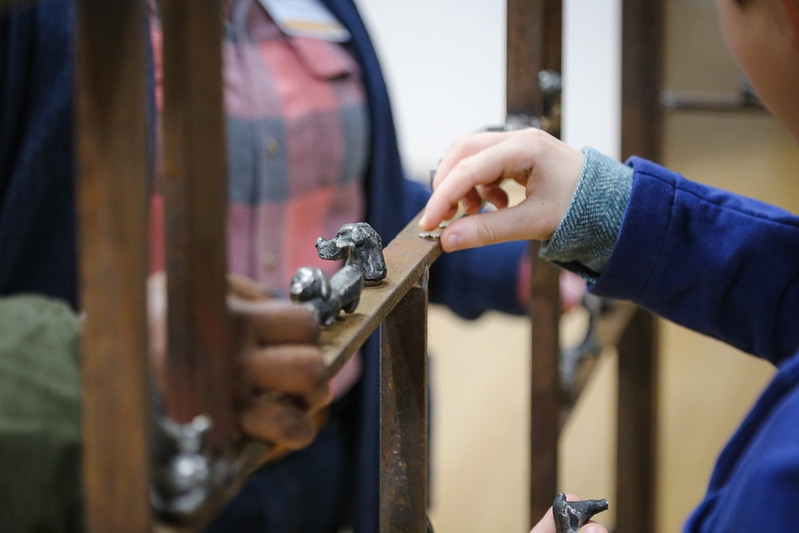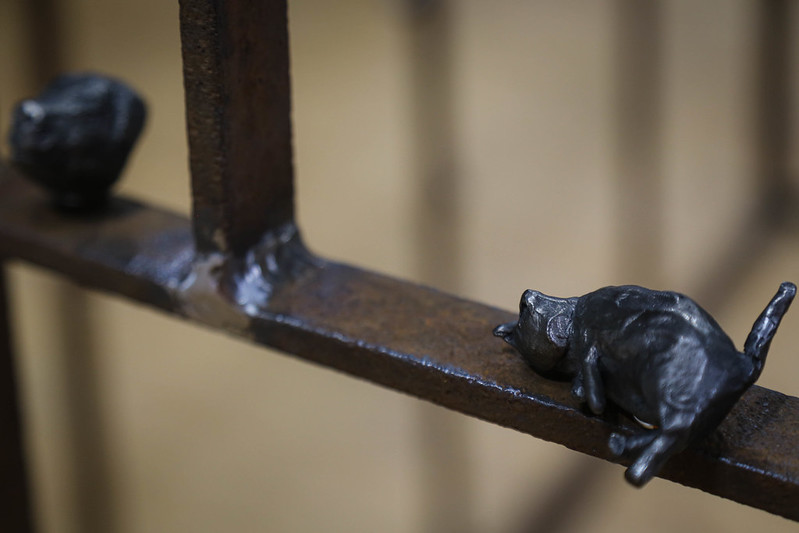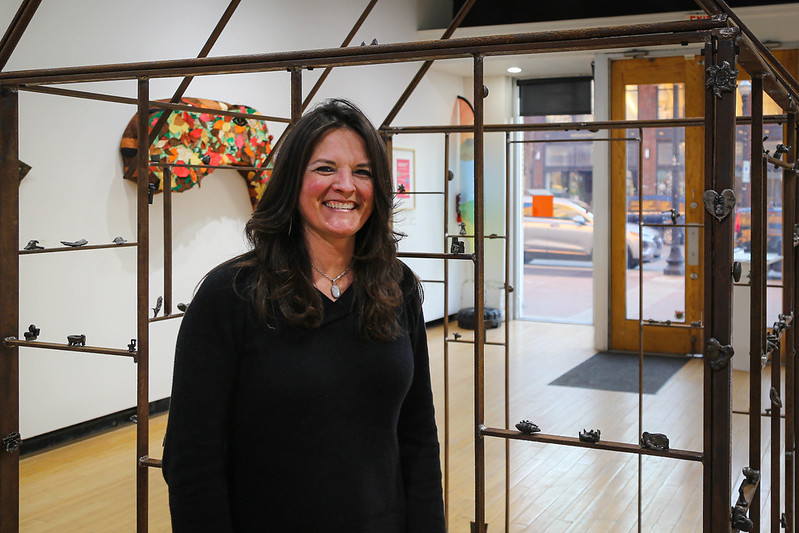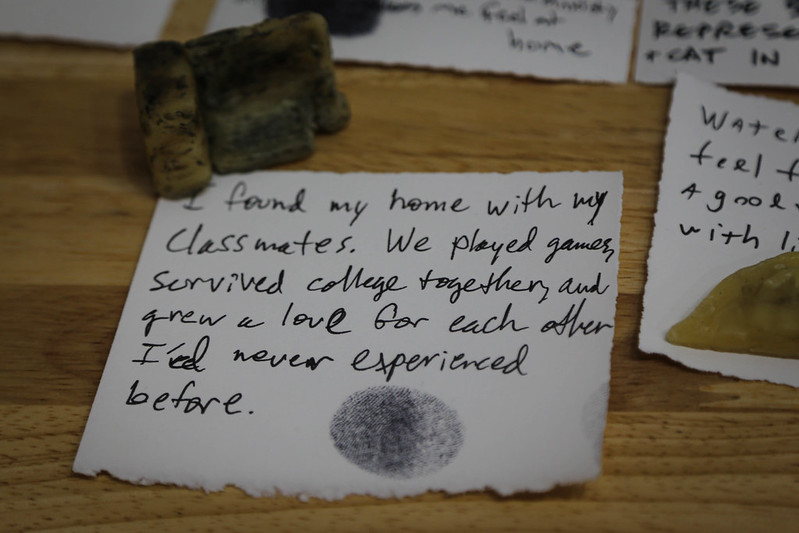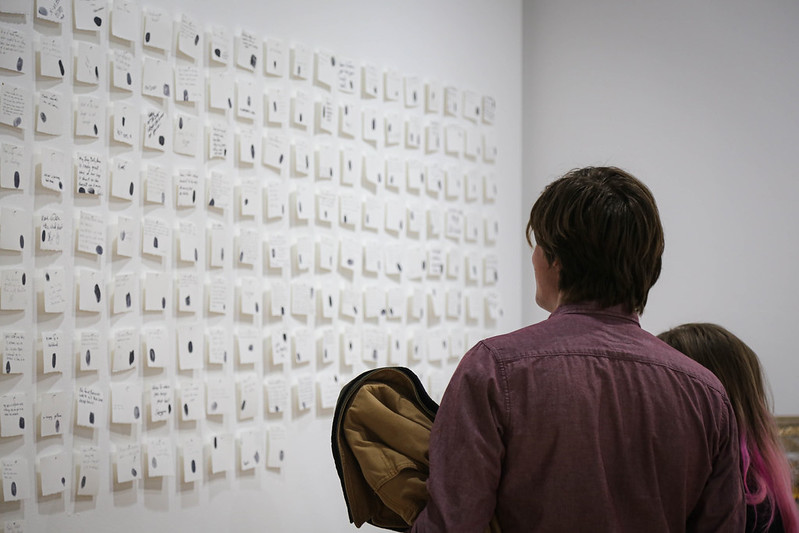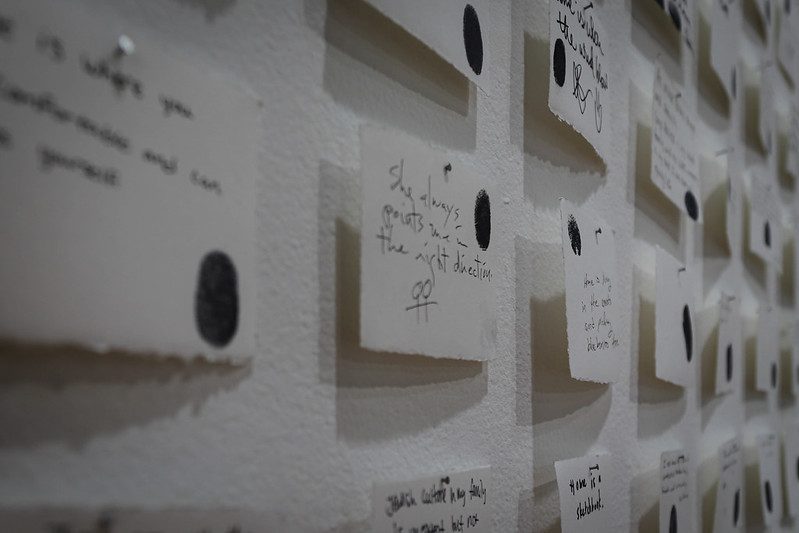*To protect the privacy of students associated with the Pride Center,
self-reported identifying information is listed instead of student names.
“Home sweet home to me.”
University of Tennessee fans sing this lyric over and over again at sporting events all year round, and many students find their home on Rocky Top in a myriad of ways. But other students may have a more difficult time singing the unofficial fight song if they experience homelessness or bullying. This past spring, UT students, faculty, staff, and other students in the Knoxville community had a chance to explore the concept of home and of their connections to home, both positive and negative, through a series of workshops, made possible by new grant funds available through UT’s Pride Center thanks to generous donor contributions.
The “Creating Artifacts of Home” workshop series encourages participants to explore the concept of home and join in conversations with others about their own connections to home. Participants are given a piece of wax that they mold into an object that signifies home to them. Participants can share about their symbolic artifact, why it reminds them of home, and other aspects of their relationship to home.
“I created a dumpling both because I was hungry at the time, but also because dumplings remind me of home. It has been hard to find authentic Vietnamese food in Tennessee, and when I find a restaurant with good food, I can let my guard down, relax, and feel like I’ll be taken care of, even if it’s just for one meal.” – Vietnamese American sophomore, studying history
As an artist and activist, Ronda Wright has been conducting the workshops for a few years across the US and started them in response to the overwhelming rate of LGBTQ+ homelessness, bullying, and suicide. The premise of the workshops is that everyone has a relation to home and that iron is an element necessary to sustain life. Wright, who is also an alumna of UT’s School of Art, drew from her own personal experiences to develop the workshop premise.
“During the workshops, participants are actively engaged in storytelling regarding how they look at home and the relationship they have to home,” says Wright. “Hearing unique perspectives from one another about this connection that we all have in common connects people to one another.”
“When I think of home, my thought process leads me to family. Family to me is seen in the jewelry I wear and the story in each piece. Like the ring my parents gave me when I turned 18. It belonged to my birth mother prior to her passing when I was young. I had it remade with her ashes so she would always be with me. I know she would have held me tight and told me she loved me no matter what when I came out as bisexual. My mom has now done the same. My wax sculpture of home was my ring, because I wanted to tell that story.” – Black first-year student, studying political science
Wright is an academic and professional development advisor and adjunct assistant professor for UT’s College of Architecture and Design. Together with Kay Dartt, another metal sculptor, artist, and professor at Shepherd University, Wright completed the iron melting and casting process in the UT Gardens, Knoxville, to create the metal artifacts from the wax molds.
After being cast in iron, the artifact becomes part of the larger collection of memories from earlier workshops. The artifacts created are then attached to a skeletal frame house. In Knoxville, this house was displayed for several weeks at UT’s Downtown Gallery.
The 6-foot by 6-foot by 10-foot skeletal frame house becomes an interactive exhibit, where visitors can pick up the iron tokens, hold them, and then place them back on the frame. The tactile experience grounds visitors to the concept of home and iron, which is essential to sustain life. Notecards written by workshop participants about their artifact are also displayed alongside the frame house. The notecards include each participant’s thumbprint as well.
Overall, Creating Artifacts of Home workshops have been conducted in 20 states with more than 1500 participants. And the exhibition has been shown in New York, Alabama, Illinois, Iowa, Minnesota, North Carolina, and now in Tennessee.
With additional support from UT’s School of Art, Creating Artifacts of Home was the first program funded through the Pride Center’s new program funds. Bonnie Johnson, director of the Pride Center, hopes it is just the first in a legacy of programming that sparks change at UT, invites students to approach intersectionality, and lights the way for students, faculty, staff, and community members to become allies.
“Participating was very impactful. I was able to listen to the stories of other students, the stories of other queer people, and feel a sense of community. It made me reflect on how considering one’s relationship to home will help me better support students who may not go back to a place where they feel affirmed and safe.” – Miranda Lough, Pride Center graduate assistant and a second year master’s student in the College Student Personnel program
Johnson says program mini-grants of up to $2,000 each will be awarded for the 2023-2024 fiscal year to support programs, events, or other initiatives that focus on gender identity, sexuality, the LGBTQ+ community, student support, or other related topics.
Johnson adds, “Throughout the Artifacts of Home program workshops, participants shared their experiences and reflections of home. Developing impactful programming for the LGBTQ+ community on campus like this one is now more achievable thanks to these funds.”
Pride Center Program Fund
To apply for program funds or give to the Pride Center’s program fund, visit pridecenter.utk.edu.
